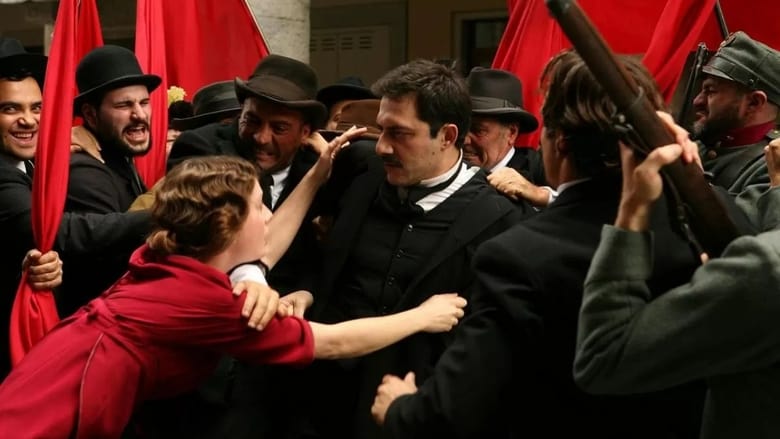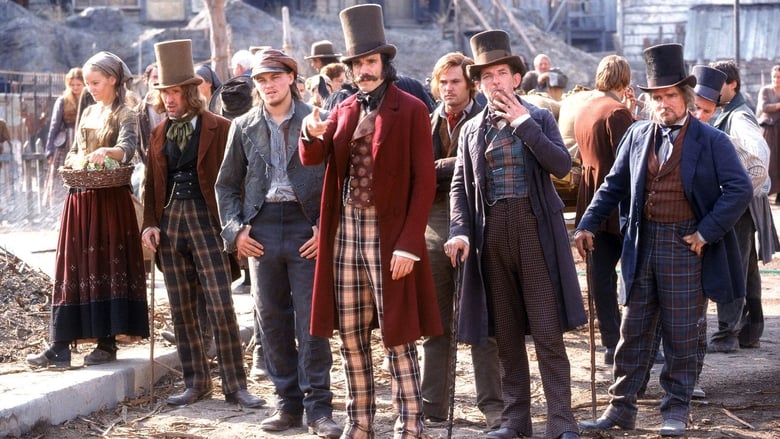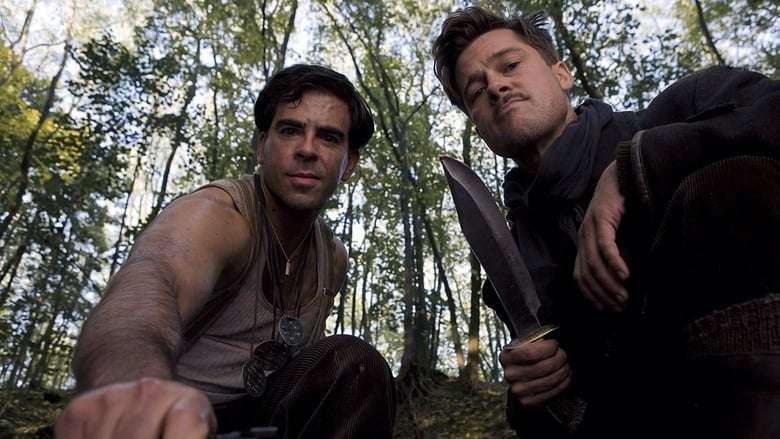The story of the descent into madness of Mussolini's secret first wife, Ida Dasler, who was seduced by his passion and vigor but blind to the fascist dictator's many flaws.


Similar titles


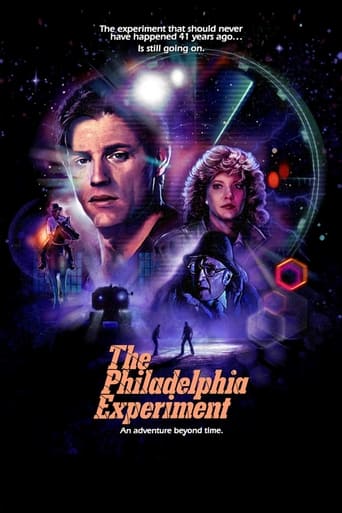
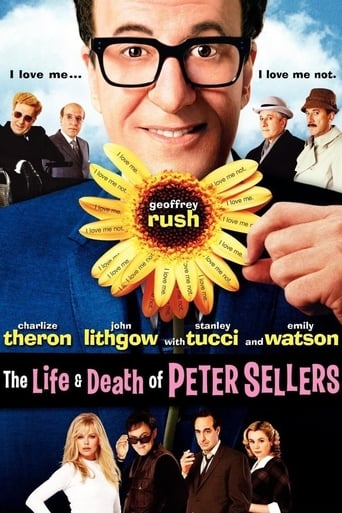
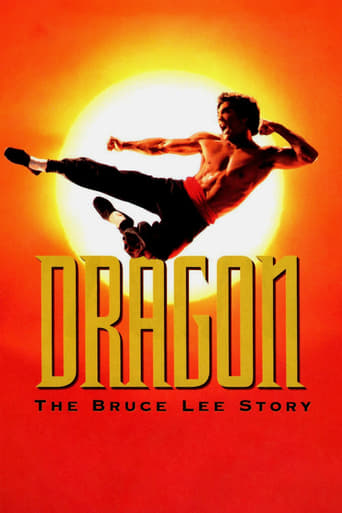
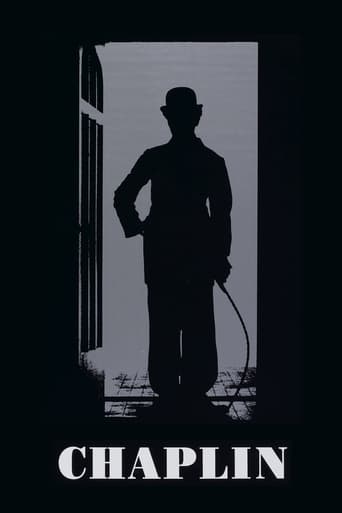



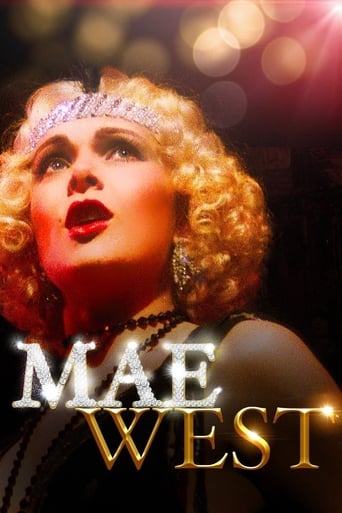
Reviews
I'm afraid to say that I'd not encountered Italian director Marco Bellochio or his work before and bought this DVD as it was part of 2 for £10 offer and it looked the most interesting the shop had.I wasn't disappointed but would say that for most viewers, myself included, that it's the human story here that holds most interest. I'm not an expert in, nor wish to know the exact history surrounding its background, except, the fact that we are dealing with an infamous Italian Fascist leader and his first son and wife. These details are essential and placing them in a time-frame via newsreels is useful.It may be that the Italians needed a film themselves about this obviously dark aberration in their home history and I guess that it does that satisfactorily, though I'm no position to know as to how accurate it is.I, for one didn't feel it too long; I was soon aware that one & 3/4 hours had been chalked up, for instance. Giovanna Mezzogiorno puts in a magnificent and honest performance as the rejected mother and wife and Filippo Timi makes a fair stab as a young Mussolini. The film has a great, semi-operatic score that's always in tune with the emotions and turmoils and helps to sweep proceedings along. The cinematography too is very good, suitably moody and majestic.Incarceration into decades of mental institutions, presumably on the order of Mussolini and the Party, a sane and healthy Ida Dalser fights tooth and nail to see her son again and for her very freedom. In a perpetual ritual of having her silenced she tries to keep hold of her dignity and sanity and tries any means possible to aid her, except she will not deny that she is wife of Mussolini, who is now "saving Italy" (and is having more important things to do than be troubled by a deluded mad-woman).I cannot think how it could be greatly improved and was a good, not great film, that tells a story that does not touch me in the historical sense but as a human one, certainly does.
Marco Bellocchio's 'Vincere' is a dark and powerful film that follows Benito Mussolini's rise to power through the eyes of his first wife, Ida Dalser, who was seduced and then betrayed by Mussolini as he abandoned her and their son on his way to becoming Italy's dictator, ultimately disavowing any knowledge of their existence. The film starts with a stylish and operatic punch as a young Mussolini (played by Filippo Timi) veers away from socialism to form the National Fascist Party, the narrative speeding through historical events at a steady pace for the first half hour, interposed with newsreel headlines and archive footage projected on screen in a manner reminiscent of Lars Von Trier's 'Europa'. Abruptly the film shifts focus to Ida Dalser (Giovanna Mezzogiorno) as she is forcibly separated first from Mussolini, then from her own son and finally from the outside world as Mussolini attempts to cover up any trace of their marriage and has Dalser committed to an insane asylum. Not only does this present a shift of perspective, but it's a stark shift in the film's tone too. Gone are the stylish and grandiose themes of revolution, seduction and upheaval, replaced by a tragic and startling performance from Mezzogiorno as her character descends further into mental illness. Filippo Timi provides a frenzied and forceful portrayal of both 'Il Duce' and the adult version of the dictator's unrequited son, but it's Giovanna Mezzogiorno's career defining performance that steals the show, showing Dalser as strong, resilient and somewhat naive in outset, harrowed, resigned and on the very brink by the film's close. Mezzogiorno's role is somewhat allegorical of the film as a whole, as like Italian society Dalser too was seduced and subsequently betrayed by the charm of the fierce and intelligent Mussolini. Ultimately with 'Vincere' Bellocchio and his lead actors present a mature and thought provoking look at one of the most clouded stories of Fascist Italy's past with an uncanny sense of style and dramatic flair and punctuated by the film's wonderful classical score. Remarkable.
"Vincere" is an artful biopic that tells the story of Benito Mussolini's mistress and perhaps first wife, Ida Dalser (Giovanna Mezzogiorno). The film jumps around the time line, mainly from the point of view of Ida, with a mixture of heated political rallies and shout fests, intense love scenes (mostly early in the movie, hidden in darkness), real footage of a pompous Mussolini, and operatic melodrama.It's not a biopic of Mussolini, but we see glimpses of his early socialist and atheist convictions, his conversion to fascism, and his eventual support for the church (for politically expedient purposes until old age, judging from the history). We hear Mussolini dream of an Italy that surpasses morality and brings about fundamental changes. He's not specific, but he doesn't want to become like average folk. He wants to outdo even Napoleon.The film follows a TV documentary and two books about Ida, based on reporting by Marco Zeni. In the reports, Ida Dalser claims she married Benito Mussolini in 1914. She also had a son with him, named Benito Albino Mussolini. Historians don't have direct evidence she married Mussolini, but they have evidence he accepted responsibility for their son. For unknown reasons, he left her a year later and married Rachele Guidi after returning from the war.According to the history (not the film), his last mistress, Clara Petacci, was executed (by firing squad) and hung upside down in the Piazza Loreto (Milan) along with him. Ida might have had that to look forward to if she had been by his side (she doesn't seem like a stay at home or turn a blind eye type of wife – she would have been with him). Tragic madness is a common theme in drama, and Ida Dalser arguably has a touch of madness. Her love affair with Benito Mussolini (Filippo Timi) operatically moves from intense devotion to angry feud. She sells everything to fund his newspaper, gives him a son, and attempts to force him to divorce his wife and return her to her rightful place by his side. She won't even think of another man. Is it love, true devotion, or revenge?Most of the film tracks Ida Dalser in extremes of emotion, especially as corrupt Fascists suppress her and take her to a madhouse. She writes to everyone to try to publicize her marriage, including the pope, and she drags her son to Mussolini to dramatically express her outrage. My first thought in trying to describe Ida was, well, at least she didn't kill her son to get back at him. The movie doesn't explicitly depict her doing anything this mischievous, or perhaps the unthinkable is possible.Did she succeed in sacrificing her son to get back at Mussolini? It's possible she embellished her relationship with Mussolini and her extreme conviction rubbed off on her son. The odd thing is that this interpretation fits with Giovanna Mezzogiorno's compelling performance of Ida throughout the film. She seems in love with more than Mussolini. She wants to stand by his side and be the public wife of a dictator. For example, she won't consider signing a power of attorney to help provide financially for her son because it might be seen by (her imagined) Mussolini as disloyalty. She refuses to lie about her marriage to return home for the sake of her son.At a minimum, she was adamant in trying to embarrass Mussolini, and she did so despite the welfare of her son. (History is less fair to Ida than the film since it also implicates her publicly denouncing Mussolini as a traitor.) She's noble in her resoluteness to truth (if the marriage is true, of course). But why wouldn't she move on when Mussolini has already married someone else? Is a country better off when political scandals come out about a politician's personal love affairs? Is her resoluteness to truth really a resoluteness to power and status, or revenge?It's easier to feel sympathy for her since the Fascists also abused their power beyond any respect for justice. The film doesn't necessarily demonize Mussolini. But only someone as powerful and ruthless as a dictator is able to persecute and silence his accusers (whether wife and son, or otherwise) rather than face them in court. It's a clear case of corruption and abuse of power.We could go back and forth between the two sides eternally. If she had remained silent, she wouldn't have been in an asylum in the first place, and Fascist doctors wouldn't have been around to try to force her to lie about her marriage. However, she wouldn't have ended up in an asylum in a just and moral country. But sometimes it's best to remain silent about some truths if they aren't in your (or your son's) best interest. And so on. The film allows you to make your own interpretation and to spread the blame around as you like. The musical score has a beautiful (and loud) recurring piece that builds up dramatically and ends in low scratchy strings. The film begins and transitions emphatically, almost mimicking Mussolini's exclamation of "boom, boom, boom" as he praises a painting. It plays like a silent film in some sequences, such as a comical scene of political advocates fighting with one another as silhouettes in front of a classic movie projector.Some of the sets nicely recreate Italy of the time period (Mussolini's duel, with factories in the background, is one of the best), but you don't get a chance to linger on them and the lighting is dark. It would be interesting to compare the film on DVD to the version played at theaters to see if the DVD is any darker than intended. As it is, it's best to view the film in complete darkness to get the benefit of its subtle lighting.Note: The subtitles translate "Vincere" as a verb, meaning "to win".
I just love allegories. I love the way so much imagination is poured into the re-telling of a story via new material. We all know our history, so we know about Benito Mussolini, Il Duce, and his reign of Fascism over Italy. But we don't know about the adulterous relationship he had with a certain Ida Dalser, who gave birth to his child and who Mussolini, in his unforgivable cold-bloodedness, calmly strived to strip apart. That's what Marco Bellocchio's new film, "Vincere", is all about: it's a historical drama about the woman Mussolini tried so hard to ruin after economically and sexually using her...and it's also a sublime allegory of how he used all of Italy.Critics worldwide have seen the genius behind portraying Mussolini's reign of terror as a headstrong but powerless woman. Ida Dalser (Giovanna Mezzogiorno) instantly falls under the spell of a young, handsome Mussolini (Filippo Timi). Italy is only beginning to experience the first waves of Socialism, and among those first to rebel against the government is this young man who has a certain power with words; in a scene where he runs away from the police for being involved in a riot, he shields himself behind the curious Ida who stepped out for a look, and passionately kisses her. I mean, Benito is a good kisser, or so he seems to be, because Ida melts in utter passion in his arms while he kisses her and he...well, he's a really good actor too, for he can focus his strength on this steamy kiss at the same time that his full concentration and awareness are scrutinizing the area to see if the police are gone. Sure enough, once they're gone he pushes Ida away and runs without so much as a half-hearted smile...but the kiss was enough for Ida to fall mercilessly in love with him.In a matter of days, she's stalking him, getting into his fights and showing him glimpses of her crotch which get our all-too human Benito hot for her. The first twenty-something minutes of the film our two main characters spend passionately and intensely going at it. Well, Ida does the passionate part and Mussolini, as I've said before, is a really good actor; while Ida spends her every second in a sexual Nirvana, he is all steam but his stare is distant, serious, no doubt thinking about anything else but the woman coming in his arms. Ida's obsession with the dude takes her as far as selling almost all of her things and giving him all the money so he can establish his own Socialist newspaper. Notice the incredibly sarcastic scene where Ida finally asks Benito to tell her 'I love you.' Mussolini, who at this point of the film hasn't gotten over his hate for Germans, plainly answers 'Ich liebe dich.' But this is an allegory, so here's where the plot thickens. Mussolini just happens to be married, Ida finds out, but he can't move himself to even let her go properly because he's becoming really powerful so he doesn't need her anymore. Ida gives birth to his child, but he couldn't care less. Ida's obsession is so deep, though, that she really starts pestering Benito every living moment she has...and by the time Benito is a 9-year old boy, Ida spills the cup and our villainous dictator sends her to an insane asylum and gives the custody of her son to one of his right-hand men. From here on, it's chaos...both in Italy and on our tragic heroine's life. Just as a side note, the film claims to be based on true events; obviously, the rise of Fascism in Italy IS a true event, but I can't vouch for the verisimilitude of Mussolini's secret lover. I'm ready to believe it, though, because he was such a horrid man that he must've done to thousands of women the very same thing he did to Ida. And not only women: I mean, didn't he screw up millions of people's lives by using them? The film brings the suffering of an entire war-torn country into a very intelligent perspective by allegorizing it into the character of Ida Dalser, and that's more than can be said by any recent historical drama.Sounds good, doesn't it? The acting is pitch-perfect, especially Mezzogiorno who redeems herself for her atrocious main performance in Mike Newell's "Love in the Time of Cholera" and manages to give us a heart-breaking, poignant, sublime and VERY powerful performance (I wonder why she didn't get an Oscar nod? Academy voters must've definitely been high). We see a woman who has no chance of survival, who'll never see her son again, whose life has been ruined by Italy's most powerful man, but her strength and courage stand true to the very last. The screenplay is VERY good, actually; Carlo Crivelli's score is one of the best scores I've heard in a long time (which sounds like a perfect cross between Philip Glass and Dario Marianelli) and Marco Dentici's cinematography couldn't possibly be better. Also, the film never lags, and it touches on so many levels of human suffering and cruelty, that you can't help but me moved to deeper thought. What more can you ask of a film? See it. Italy has outdone itself this year with such an excellent film. No one in their right minds could possibly be disappointed. Rating: 4 stars out of 4!!

